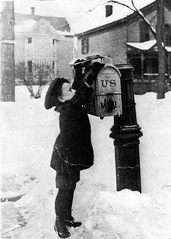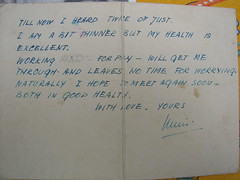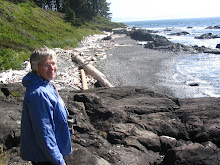 Image by Smithsonian Institution via Flickr
Image by Smithsonian Institution via Flickr
Major General Hank Morrow used the acronym SAPP in discussing the safe use of social networking sites. SAPP stands for security, accuracy, policy, and privacy. "The SAPP principle is an easy one to remember when you're about to blog about an upcoming deployment or a recent court martial in your unit or the rumor you heard in the squadron break room," Morrow wrote. "Is the information accurate? Can you back it up with facts? Are you compromising operational security by releasing this information? Are you violating someone's privacy by blogging about him or her?" (Brewin, 2009)
This reminded me of the letters that Canadian armed forces personnel wrote during World Wars One and Two. They had to be careful what information was included in the letters. The letters passed through the hands of censors before they were sent on to North America. Of
 Image by noii's via Flickr
Image by noii's via Flickr
Morrow is concerned about the information from social networking sites being retrieved by the enemies of America and pieced together to provide the enemies a way to hurt the United States.
I never thought about the headache that social networking sites give to other institutions besides schools.
Where's my Tylenol?
Reference:
Brewin, B. (04 August 2009). A social network happy medium. At nextgov. Online at http://whatsbrewin.nextgov.com/2009/08/a_social_network_happy_medium.php
![Reblog this post [with Zemanta]](http://img.zemanta.com/reblog_e.png?x-id=b6e33804-b4d3-429c-a3df-275f353d25f8)





Interesting, isn't this? SNS puts national security on the line.
ReplyDeleteLori